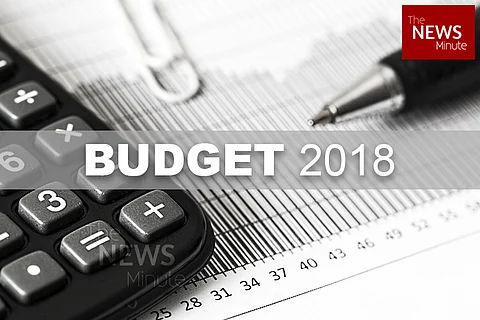

The Union Budget introduced schemes to boost the agricultural sector and uplift the poor and marginalized through its health schemes, but it has left the salaried class disappointed.
While there has been no change in the income tax slabs, the salaried class may just end up paying more out of their pockets.
In addition to the unchanged income tax slabs, in what has been termed as a relief to salaried taxpayers, the government has decided to re-introduce a standard deduction of Rs 40,000 in lieu of the present exemption for transport allowance and reimbursement of miscellaneous medical expenses.
Standard deduction, before it was abolished in 2005-06, stood at up to Rs 30,000. Twelve years later, it has been reintroduced at Rs 40,000. Is this really bringing relief to tax players as claimed by the government?
“Standard deduction has been reintroduced but at a cost, it takes away medical reimbursement and travel allowance. There were several demands to raise medical reimbursement from 15,000 and bring it up according to current prices (the amount has been same since more than a decade). However, now the clamour for raising this limit will die down. With this, for a salaried, the amount taxable under salary shall be reduced by Rs 5,800, while cess will go up by 1%,” Archit Gupta, Founder and CEO ClearTax said.
The deduction is in lieu of a medical allowance of Rs 15,000 and transport allowance of Rs 19,200 that salaried employees received during the previous financial year. In effect, you have a respite of Rs 5,800 on your taxable income for the year.
However, the tax each employee saves depends on the tax slab they fall under. For example, a person paying 20% income tax (Rs 5-10 lakh income per annum), the tax saved comes to Rs 1160.
The Finance Minister also announced that the Education Cess of 3% will be removed, and a Health and Education Cess of 4% will be imposed. This increases the cess to be paid by 1% over and above the income tax to be paid.
Taking all this into consideration, those earning over Rs 5 lakh per annum might just end up paying more tax.
Additionally, mutual funds, which is currently the most attractive and most adopted instrument of investment and saving, will be taxed.
The budget announced a 10% tax on long-term capital gains exceeding Rs 1 lakh. For example, if you have held an investment for over a year and made over Rs 1 lakh on it, you will now have to pay 10% tax. The income received on equity-oriented mutual funds too will be taxed at 10%.
This means that the salaried class will now have to shell out additional tax even on their mutual fund investments.
However, experts suggest that while the salaried class will shell out more from their pockets, tax on mutual funds should not cause people to turn away from it.
According to Archit Gupta, mutual funds are still very much a viable investment option.
"The reason for this is the performance of other asset classes such as fixed deposits, savings accounts, gold, etc. The returns that mutual funds will give you will any day overweigh the other asset classes and for an income.of over Rs 10 lakhs. 10% tax shouldn't ideally hurt much," he said.